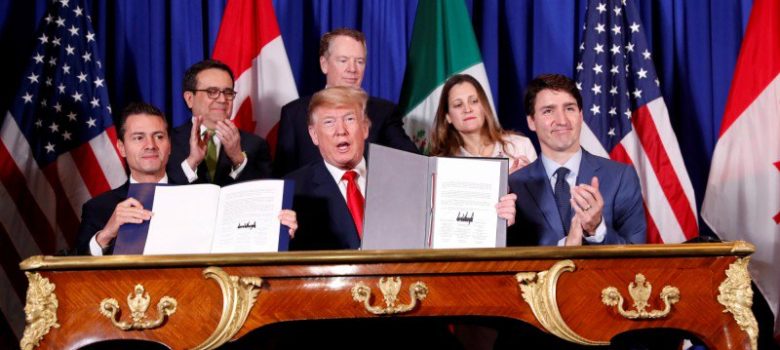The Canadian government tabled Bill C-100 yesterday, the bill to implement the Canada-US-Mexico Trade Agreement. I will have future post on the key provisions, which include new criminal provisions on trade secrets and tampering with rights management information. The bill also features several provisions related to copyright term but notably does not touch the current general copyright term of life of the author plus an additional 50 years. There are several new terms included in the bill with extensions for anonymous works, performances in sound recordings, sound recordings, and cinematographic works. The bill expressly states that none of the extensions are retroactive which means that the works that are currently in the public domain will remain there even after the new terms are established.
Yet the big story is that Section 6 of the Copyright Act, which states that the general term of copyright is life of the author plus 50 years, remains unchanged despite a USMCA requirement of life plus 70 years. Why unchanged?
I am advised that the reason is that the Canadian government negotiated a 2 1/2 year transition period for the USMCA and it intends to use the time to consult with the public on the best way to meet the copyright term obligation. That holds the promise of the making the best of a bad situation given that few (other than the embarrassingly one-sided Heritage committee study) think that extending the term of copyright benefits Canadians.
For example, there has been some thought given to establishing a registration requirement for the additional 20 years. That approach would allow rights holders that want the extension to get it, while ensuring that many other works enter the public domain at the international standard of life plus 50 years. By providing for life plus 50 and the option for an additional 20 years, Canadian law would be consistent with Berne Convention formalities requirements and with its new trade treaty obligations. Copyright registration would not eliminate all the harm to the public domain, but it would mean that only those that desire the extension would take the positive steps to get it, thereby reducing the costs of the USMCA’s unnecessary copyright term extension.








IMHO it is a “good” work around if as suggested BUT for me the concern is the anti-cerconvetion rules and is the biggest problem with the US DMCA EX now with right-to-repair and computer learning and other “research”
But the extensions are retroactive for works where copyright hasn’t yet expired, right? A work that would enter the public domain in 2025 won’t do so if this is passed. So it does retroactively re-write the bargain that the rightsholders agreed to when they created their work, to the benefit of the rightsholder and the cost to everyone else.
“No revival of copyright
32 Sections 6.1, 6.2 and 11.1, paragraphs 23(1)(a) and (b) and subsection 23(1.1) of the Copyright Act, as enacted by sections 22, 24 and 27, respectively, do not have the effect of reviving the copyright or a right to remuneration in any work, performer’s performance fixed in a sound recording or sound recording in which the copyright or the right to remuneration had expired on the coming into force of those provisions of that Act.”
Pingback: New Stephen's Lighthouse
Pingback: Canada Introduces USMCA Implementation Bill…Without a General Copyright Term Extension Provision | infojustice
Pingback: Canada Dodges Another Copyright Bullet: No Term Extension from USMCA
Not a pleasant news at all:(((